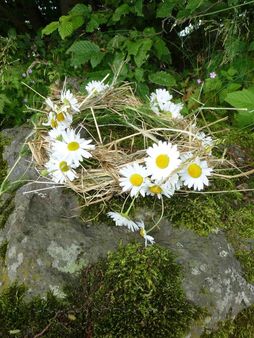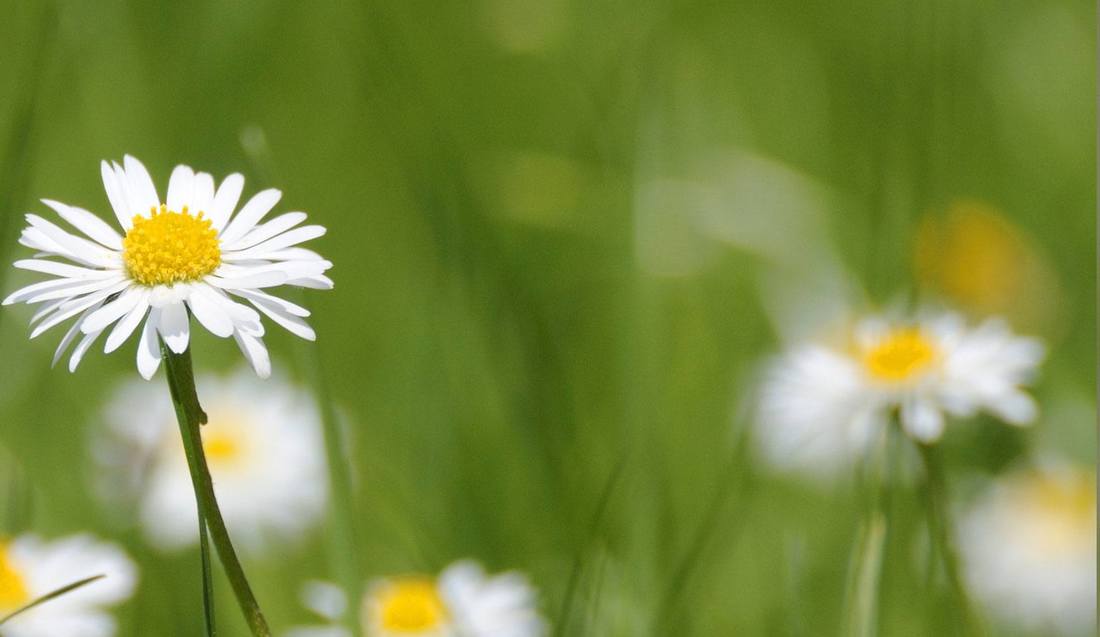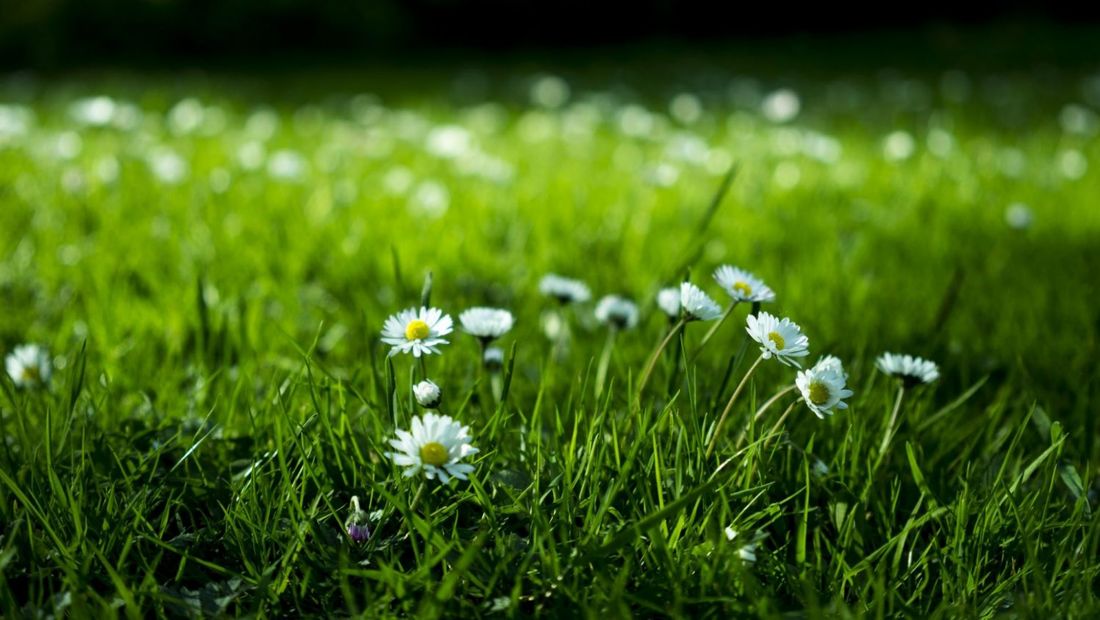|
From early spring to late autumn the common daisy, Bellis perennis, with its pink buds that open to pretty golden-eyed, white-petalled flowers can be found in parks, meadows and pastures, road verges and woodland glades. A perennial that will happily exist in a wide range of conditions and grows in all sorts of habitats but especially grassland that is mowed, grazed or trampled. The flowers open to greet the morning sun and remain open for an eclectic assortment of flying insects before closing up again as the daylight fades and which gave it the name of 'day's eye' in earlier times. If you like perfect lawns, however, it is a plant considered a weed, but this ubiquitous little wildflower holds associations for many in the making of childhood daisy chains. Trying to eradicate them from carpet-like lawns (other than death by herbicide) is compounded by the fact that mowing and tending a lawn actively encourages daisies to thrive. Instead of spending time and energy attempting to curb the enthusiasm of daisies in your lawn, choose to live with this cheerful little flower, it does no real harm, adds a certain otherworldly charm and can be a great boon to the wildlife that increasingly relies on gardens.  folklore the daisy features most as a plant known for their divination in love spells practiced by young girls the English-speaking world over, though more commonly intoned as 'He loves me, he loves me not'. Daisies are considered feminine in nature, resonating with the energy of Venus and the water elements so are considered suitable offerings on Beltane or Midsummer and they make dainty wreathes for your hair. Daisies are widely recognised as a healing herb and had a great reputation for treating fresh wounds. Surgeons who accompanied Roman legions into battle would order slaves to pick sacks full of daisies in order to extract their juice. Bandages soaked in the juice would then be used to bind sword and spear cuts. the juice was said to promote healing and prevent suppuration after deep tissue wounds or trauma. A distillation of daisy flowers, rich in saponins, was once taken as tea, for inflammatory disorders, fevers and aid for the liver and gallbladder. The daisy tea was also taken to help relieve gout and rheumatism symptoms.
Daisy Tea: Make a cup of tea by boiling a cup of water over a tsp. of dried herb for 10 minutes and drink two or three times a day; you can also mix with dandelion or chicory.
0 Comments
Leave a Reply. |
WildEdges
A haven of quiet countryside highlighting issues affecting the natural world. Categories
All
|



 RSS Feed
RSS Feed